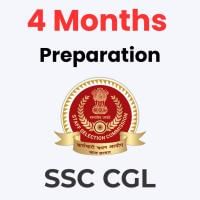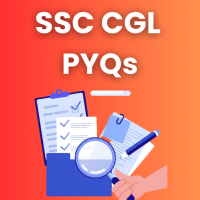SSC CGL Exam > SSC CGL Questions > Which of these sentences correctly forms a qu...
Start Learning for Free
Which of these sentences correctly forms a question in the simple future tense?
- a)Will they understands the instructions?
- b)Will she be attending the meeting?
- c)Does he will live in the city?
- d)Are they will be traveling next year?
Correct answer is option 'B'. Can you explain this answer?
Verified Answer
Which of these sentences correctly forms a question in the simple futu...
Option B ("Will she be attending the meeting?") correctly forms a question in the simple future tense using 'will' + subject (she) + 'be' + present participle (attending). The other options contain errors in verb form and structure.
View all questions of this test
Most Upvoted Answer
Which of these sentences correctly forms a question in the simple futu...
Understanding Simple Future Tense Questions
In English, the simple future tense is used to describe actions that will occur at a later time. When forming questions in this tense, there are specific structures to follow. Let's analyze the provided options.
Option A: Will they understands the instructions?
- Incorrect: The verb "understands" is in the present tense and should be "understand" to agree with the auxiliary "will."
Option B: Will she be attending the meeting?
- Correct: This sentence correctly uses "will" followed by the subject "she," and the verb "be attending," which indicates an action happening in the future. It follows the correct structure for future continuous tense, which is acceptable in simple future contexts.
Option C: Does he will live in the city?
- Incorrect: The auxiliary verb "does" is not compatible with "will." The correct structure should be "Will he live in the city?"
Option D: Are they will be traveling next year?
- Incorrect: The combination of "are" and "will" is incorrect. It should simply be "Will they be traveling next year?"
Conclusion
In summary, option B is the only correct formation for a question in the simple future tense. It demonstrates proper use of the auxiliary verb "will" and maintains an appropriate structure for a future action. Understanding these structures is crucial for mastering English grammar, particularly for exams like the SSC CGL.
In English, the simple future tense is used to describe actions that will occur at a later time. When forming questions in this tense, there are specific structures to follow. Let's analyze the provided options.
Option A: Will they understands the instructions?
- Incorrect: The verb "understands" is in the present tense and should be "understand" to agree with the auxiliary "will."
Option B: Will she be attending the meeting?
- Correct: This sentence correctly uses "will" followed by the subject "she," and the verb "be attending," which indicates an action happening in the future. It follows the correct structure for future continuous tense, which is acceptable in simple future contexts.
Option C: Does he will live in the city?
- Incorrect: The auxiliary verb "does" is not compatible with "will." The correct structure should be "Will he live in the city?"
Option D: Are they will be traveling next year?
- Incorrect: The combination of "are" and "will" is incorrect. It should simply be "Will they be traveling next year?"
Conclusion
In summary, option B is the only correct formation for a question in the simple future tense. It demonstrates proper use of the auxiliary verb "will" and maintains an appropriate structure for a future action. Understanding these structures is crucial for mastering English grammar, particularly for exams like the SSC CGL.

|
Explore Courses for SSC CGL exam
|

|
Question Description
Which of these sentences correctly forms a question in the simple future tense?a)Will they understands the instructions?b)Will she be attending the meeting?c)Does he will live in the city?d)Are they will be traveling next year?Correct answer is option 'B'. Can you explain this answer? for SSC CGL 2025 is part of SSC CGL preparation. The Question and answers have been prepared according to the SSC CGL exam syllabus. Information about Which of these sentences correctly forms a question in the simple future tense?a)Will they understands the instructions?b)Will she be attending the meeting?c)Does he will live in the city?d)Are they will be traveling next year?Correct answer is option 'B'. Can you explain this answer? covers all topics & solutions for SSC CGL 2025 Exam. Find important definitions, questions, meanings, examples, exercises and tests below for Which of these sentences correctly forms a question in the simple future tense?a)Will they understands the instructions?b)Will she be attending the meeting?c)Does he will live in the city?d)Are they will be traveling next year?Correct answer is option 'B'. Can you explain this answer?.
Which of these sentences correctly forms a question in the simple future tense?a)Will they understands the instructions?b)Will she be attending the meeting?c)Does he will live in the city?d)Are they will be traveling next year?Correct answer is option 'B'. Can you explain this answer? for SSC CGL 2025 is part of SSC CGL preparation. The Question and answers have been prepared according to the SSC CGL exam syllabus. Information about Which of these sentences correctly forms a question in the simple future tense?a)Will they understands the instructions?b)Will she be attending the meeting?c)Does he will live in the city?d)Are they will be traveling next year?Correct answer is option 'B'. Can you explain this answer? covers all topics & solutions for SSC CGL 2025 Exam. Find important definitions, questions, meanings, examples, exercises and tests below for Which of these sentences correctly forms a question in the simple future tense?a)Will they understands the instructions?b)Will she be attending the meeting?c)Does he will live in the city?d)Are they will be traveling next year?Correct answer is option 'B'. Can you explain this answer?.
Solutions for Which of these sentences correctly forms a question in the simple future tense?a)Will they understands the instructions?b)Will she be attending the meeting?c)Does he will live in the city?d)Are they will be traveling next year?Correct answer is option 'B'. Can you explain this answer? in English & in Hindi are available as part of our courses for SSC CGL.
Download more important topics, notes, lectures and mock test series for SSC CGL Exam by signing up for free.
Here you can find the meaning of Which of these sentences correctly forms a question in the simple future tense?a)Will they understands the instructions?b)Will she be attending the meeting?c)Does he will live in the city?d)Are they will be traveling next year?Correct answer is option 'B'. Can you explain this answer? defined & explained in the simplest way possible. Besides giving the explanation of
Which of these sentences correctly forms a question in the simple future tense?a)Will they understands the instructions?b)Will she be attending the meeting?c)Does he will live in the city?d)Are they will be traveling next year?Correct answer is option 'B'. Can you explain this answer?, a detailed solution for Which of these sentences correctly forms a question in the simple future tense?a)Will they understands the instructions?b)Will she be attending the meeting?c)Does he will live in the city?d)Are they will be traveling next year?Correct answer is option 'B'. Can you explain this answer? has been provided alongside types of Which of these sentences correctly forms a question in the simple future tense?a)Will they understands the instructions?b)Will she be attending the meeting?c)Does he will live in the city?d)Are they will be traveling next year?Correct answer is option 'B'. Can you explain this answer? theory, EduRev gives you an
ample number of questions to practice Which of these sentences correctly forms a question in the simple future tense?a)Will they understands the instructions?b)Will she be attending the meeting?c)Does he will live in the city?d)Are they will be traveling next year?Correct answer is option 'B'. Can you explain this answer? tests, examples and also practice SSC CGL tests.

|
Explore Courses for SSC CGL exam
|

|
Signup for Free!
Signup to see your scores go up within 7 days! Learn & Practice with 1000+ FREE Notes, Videos & Tests.


















